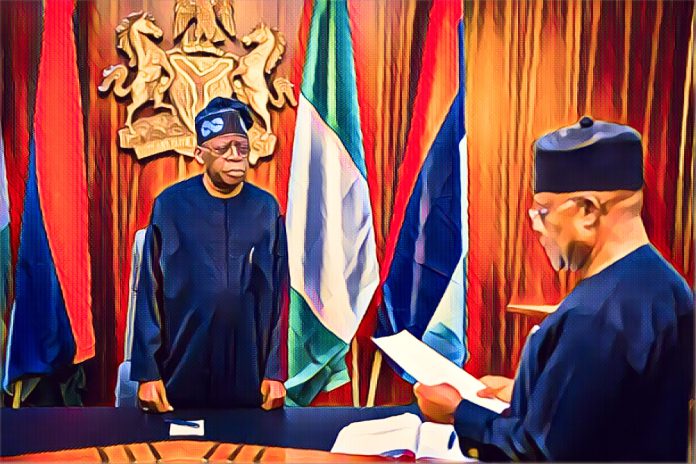Key Points
-
A court in Abuja will hear a case on April 10, challenging the suspension of Rivers State’s governor and the appointment of a Sole Administrator.
-
The lawyer argues that the president does not have the power to remove elected state officials and appoint a Sole Administrator.
-
The case aims to protect the Constitution and prevent abuse of presidential power.
The Federal High Court in Abuja has set April 10, 2025, to hear a case against President Bola Tinubu and Vice Admiral Ibok-Ete Ekwe Ibas.
The case challenges the suspension of the Rivers State governor and deputy governor, and the appointment of Ibas as the state’s Sole Administrator.
The case, filed by lawyer Mr. Johnmary Jideobi, argues that these actions are unconstitutional. President Tinubu is the first defendant, and Ibas is the third defendant in the case.
Arguments and legal questions
Jideobi argues that President Tinubu does not have the constitutional power to remove or suspend elected officials like the Rivers State governor and deputy governor.
He says that the president’s actions violate the Nigerian Constitution.
The lawyer is asking the court to declare the suspension of the governor and deputy governor, and the appointment of Ibas, as illegal.
He also wants the court to stop the president from appointing any Sole Administrator in any state in Nigeria.
Jideobi says that Nigeria follows federalism, meaning the powers of the president should not interfere with the roles of elected state officials.
He believes that no appointed official, like Ibas, has the right to replace elected officials unless allowed by the Constitution.
Need for court’s intervention
The plaintiff also stresses that the court’s decision is important to protect the rule of law. He worries that, without the court’s involvement, the president could use this power to remove elected officials and cause instability.
Jideobi adds that the position of Sole Administrator does not appear in the Nigerian Constitution, making the president’s actions unconstitutional.
Public interest and legal precedents
Jideobi claims this case is important for all Nigerians. He wants to make sure that the Constitution is followed and that the president’s power does not go beyond what the law allows. He fears that without proper checks, these actions could lead to problems in the future.
What happens next?
The court will hear the case on April 10, and many are waiting to see the outcome. The decision will affect how Nigeria’s laws are understood and could change how presidents use their power in the future.



